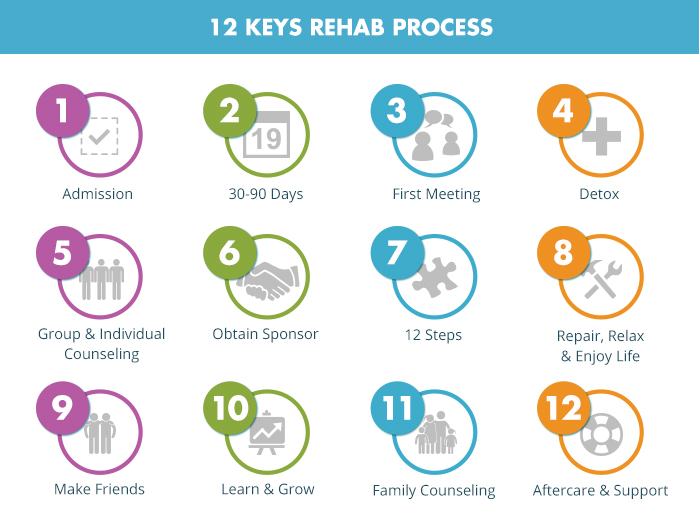Conquering Opiate Cravings During Opiate Addiction Treatment
Despite your best efforts with opiate abuse treatment, you might still have breakthrough cravings. Even with medications like buprenorphine and methadone, the habit of using opiates might cause you to relapse. Fortunately, there are ways to conquer these cravings during opiate addiction treatment.
Avoid Stressful Situations
According to the National Institute on Drug Abuse, addiction could be a coping mechanism for stress. If you started using due to stress, there is a good chance you will go back to using because of it as well.
Even though stress is a natural part of life, there are ways to avoid it and deal with it in a healthy manner. These ways of dealing with stress are something that you learn in opiate abuse treatment.
Find a Hobby
Not only are hobbies generally enjoyable, they are known to reduce stress and keep your mind active. By finding a hobby that you can do anywhere, you can use it to distract you when you are craving opiates. It is important to find a hobby that you like doing.
Start a Journal
Journals are a great therapeutic tool. It can give you time to reflect. You can also write your goals down so when you are thinking about using again, you can look back and see how much you’ve accomplished. Journals are also good motivators. You can see your progress by reading back through it.
You can bring your journal with you and write whenever you get a craving. This may also help you identify additional triggers. By writing when you are craving opiates, you will have a written record of what triggered it.
Seek Help if you Need it
Seeking help when you need it is an excellent way to conquer an opiate craving. Your friends and those in your support system can help to distract you from using opiates again. Your friends can help you get back out into the world without the opiates.
Things to Consider when Choosing an Opiate Abuse Treatment
Deciding to get opiate addiction treatment is one of the hardest decisions you will make. Choosing the right opiate treatment does not have to be as difficult. This choice is easy to make when you consider these simple things.
What you Expect to get from Treatment
Before entering treatment, you will want to know what you expect to get out of it. Some people enter treatment wanting to stop their opiate use entirely. Others simply want to cut back to more normal levels of opiate use. Be clear about what you want treatment to do for you.
If you Want Inpatient or Outpatient Treatment
Inpatient treatment is residential and outpatient treatment is not. If you can take the time away from work, school, and your family, inpatient treatment might be right for you. If you cannot, then outpatient will work best. You can also choose a combination of inpatient and outpatient treatment.
Long or Short Term Treatment
When you have a severe addiction, you might want long term treatment to help you get away from using opiates. If you just want to detox and receive some counseling intensive short term treatment is easier. It is important to remember that long term treatment has a higher success rate than short term treatment.
What Type of Program is Best for you
There are many addiction treatment program types. Opiate addiction treatment usually combines medication with counseling or therapy. Which medications and what type of therapy you choose, depends on what you feel is best for you and your doctor. You can also choose a program without medication at all. There are also alternative treatment programs to help you.
If the Program will Change with You
According to the National Institute on Drug Abuse, a good treatment program will change with you. Your program must be flexible to continually meet your opiate abuse treatment needs. If it does not, the program will fail.
5 Facts About Opiate Abuse Treatment
Making the decision to seek addiction treatment is very difficult. Once you’ve made that decision entering opiate abuse treatment is sometimes a frightening prospect. Fortunately, these facts might help alleviate some of that fear.
Opiate Addiction Treatment is Difficult
Opiate addiction treatment is hard. You are changing your whole way of life. When you are using opiates your life becomes a cycle of finding opiates, doing opiates, and then finding them again. When you are in treatment that cycle goes away and you get your life back. These changes are not easy ones to make.
Treatment may be your Only Way Out
Giving up opiates on your own is extremely difficult, if not impossible. Treatment may be the only way to end your addiction. If you do not take treatment seriously, you will relapse. Fortunately, according to the Substance Abuse and Mental Health Services Administration, there are many types of treatment available. You can choose the treatment type that suits your needs, wants, and goals. Without treatment, there is a good possibility that your opiate use will eventually kill you.
Treatment Facilities will not Judge you
The addiction specialists at treatment centers are there to help you, even when you relapse. They do not judge you. They all understand that addiction is a chronic relapsing disease and treatment may be your only hope of conquering it.
They also will not judge you for the things that you did while addicted to opiates. In order to be an addiction treatment specialist, you have to have compassion for those who fell into the cycle of addiction.
Treatment is Always there When you Need it
Treatment and treatment facilities are always there when you need them. Addiction treatment does not go away. There are 12 step meetings all day in most cities around the world and counselors are available almost any time. If you feel that you need treatment, it is available for you.

